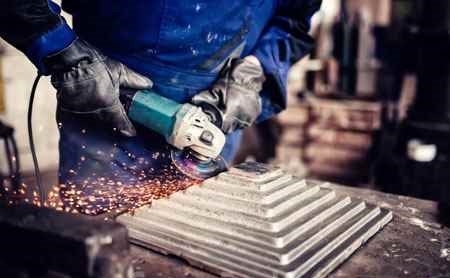
Metallurgical Engineering Major
A Metallurgical Engineering major/degree program prepares individuals to apply mathematical and metallurgical principles to the design, development and operational evaluation of metal components of structural, load-bearing, power, transmission, and moving systems; and the analysis of engineering problems such as stress, creep, failure, alloy behavior, environmental fluctuations, stability, electromagnetic and thermodynamic characteristics, optimal manufacturing processes, and related design considerations.
Includes instruction in engineering, mathematics, calculus, chemistry, and physics as well as laboratory work.
What can you do with a major/degree in Metallurgical Engineering?
With a major/degree in Metallurgical Engineering, you will position yourself well for a career in specializing in the development, processing, and testing of metals. Job responsibilities may be varied and depend on the location of employment. Typically, work is done in the industrial sector for manufacturing firms, mining companies and scientific groups.
Trade Associations and Professional Organizations in Metallurgical Engineering
Professional associations are groups of specialists dedicated to topics in particular fields. Professional associations provide a wealth of online resources, some of which are geared specifically towards students. These organizations typically also host conferences and events, providing great opportunities for learning and networking across your field of interest.
- American Institute of Mining, Metallurgical, and Petroleum Engineers
- Mining & Metallurgical Society of America
Publications/Magazines in Metallurgical Engineering